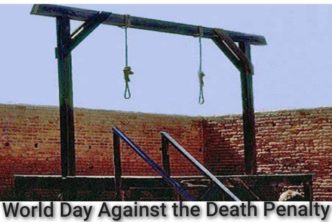PUBLIC AI Index: MDE 13/164/2008
10 November 2008
Further Information on UA 130/08 (MDE 13/069/2008, 16 May 2008) and follow-up (MDE 13/131/2008, 2 September 2008) – Prisoner of conscience/ Medical concern
IRAN Emadeddin Baghi (m) aged 46, human rights defender
Journalist and human rights defender, Emadeddin Baghi, was released on 5 October 2008, three days before completing the one year sentence he was serving. He had been granted temporary leave on 15 September on medical grounds in order to seek treatment for a back problem. Following a request by his doctor, Emadeddin Baghi’s leave was extended until 5 October, when he also learned that he had been released.
On the day of his release, Emadeddin Baghi had been due to appear before the Appeal Court in Tehran which was responsible for reviewing a three-year sentence he had received in July 2007. The hearing was postponed when Emadeddin Baghi produced a medical report stating that he was suffering from a slipped disc and pain resulting from sciatica in his right leg caused by irritation of the main nerve into the leg, and was unable, therefore, to sit.
On 31 July 2007, Emadeddin Baghi received a three year sentence from Branch 6 of the Revolutionary Court on charges of “activities against national security” and “publicity in favour of the regime’s opponents”. The charges related to media interviews Emaddedin Baghi had given, and letters he had written to the authorities, in his capacity as the head of the non-governmental organization, the Association for the Defence of Prisoners’ Rights. He had criticized the death sentences imposed after unfair trials on several Iranian Arabs for their alleged involvement in carrying out bombings in Ahvaz, in Khuzestan province, which took place between June and October 2005. On 29 April 2008, Branch 44 of the Appeal Court acquitted him of these charges. Shortly after this, however, the prosecution appealed against the acquittal and the case was sent for review. Despite this, Emadeddin Baghi now faces new charges relating to his criticism of the prison authorities’ treatment of human rights defender Sayed Ali Akbar Mousavi-Kho’ini in 2006.
BACKGROUND INFORMATION
Iranian legislation severely restricts freedom of expression and association, and human rights defenders often face harassment, imprisonment and torture. The Iranian Constitution contains provisions that, in principle, protect freedom of expression and belief: Article 23 states that “The investigation of individuals’ beliefs is forbidden” and that “No one may be molested or taken to task simply for holding a certain belief.” Article 24 provides for freedom of expression in press and publications. In practice, however, those who exercise these rights are liable to arrest and imprisonment although Iran is a state party to international human rights treaties that enshrine these rights, notably the International Covenant on Civil and Political Rights.
The Penal Code contains a number of vaguely worded provisions relating to association and “national security” which prohibit a range of activities, many of them connected with journalism or public discourse, which are permitted under international human rights law. Human rights defenders are often imprisoned on politically motivated criminal charges. Many are subject to travel bans that prevent them from leaving the country.
RECOMMENDED ACTION: Please send appeals to arrive as quickly as possible, in Persian, Arabic, English, French or your own language:
– welcoming Emadeddin Baghi’s release,
– urging the authorities to drop any charges brought against him if they are solely related to his peaceful activities as head of the Association for the Defence of Prisoners’ Rights;
– asking to be informed in detail of any charges brought against him;
– calling on the authorities to ensure that any judicial proceedings against him conform to international standards for fair trial;
– reminding the authorities that as a state party to the International Covenant on Civil and Political Rights they have undertaken to uphold Article 19 of the Covenant which states that everyone has the right to freedom of expression.
APPEALS TO:
Head of the Judiciary
His Excellency Ayatollah Mahmoud Hashemi Shahroudi
Howzeh Riyasat-e Qoveh Qazaiyeh / Office of the Head of the Judiciary
Pasteur St., Vali Asr Ave., south of Serah-e Jomhouri, Tehran 1316814737, Islamic Republic of Iran
Email: [email protected] (In the subject line write: FAO Ayatollah Shahroudi)
Salutation: Your Excellency
Minister of Intelligence
Gholam Hossein Mohseni Ejeie
Ministry of Intelligence, Second Negarestan Street, Pasdaran Avenue,
Tehran, Islamic Republic of Iran
Salutation: Your Excellency
Leader of the Islamic Republic
His Excellency Ayatollah Sayed ‘Ali Khamenei, The Office of the Supreme Leader
Islamic Republic Street – Shahid Keshvar Doust Street
Tehran, Islamic Republic of Iran
Email: [email protected]
Salutation: Your Excellency
COPIES TO:
President
His Excellency Mahmoud Ahmadinejad
The Presidency
Palestine Avenue, Azerbaijan Intersection
Tehran, Islamic Republic of Iran
Fax: + 98 21 6 649 5880
Email: via website: http://www.president.ir/email/
Director, Human Rights Headquarters of Iran
His Excellency Mohammad Javad Larijani
Howzeh Riyasat-e Qoveh Qazaiyeh (Office of the Head of the Judiciary)
Pasteur St, Vali Asr Ave., south of Serah-e Jomhouri, Tehran 1316814737, Islamic Republic of Iran
Fax: +98 21 3390 4986 (there are problems with this line, please try three times)
Email: [email protected] (In the subject line: FAO Mohammad Javad Larijani)
and to diplomatic representatives of Iran accredited to your country.
PLEASE SEND APPEALS IMMEDIATELY. Check with the International Secretariat, or your section office, if sending appeals after 22 December 2008.





